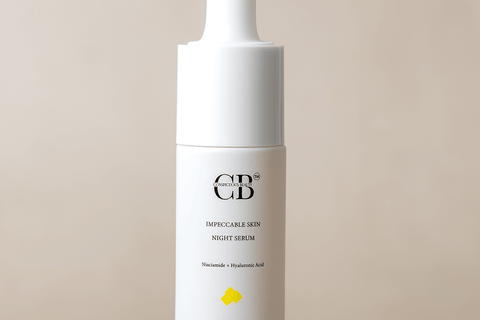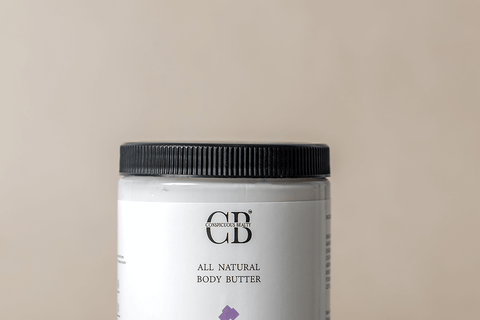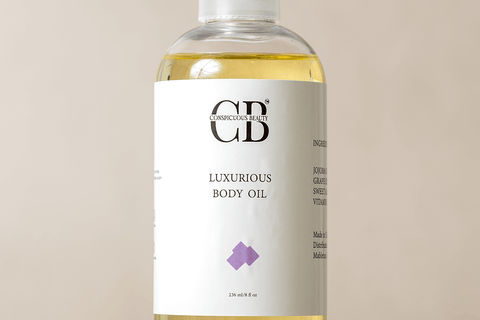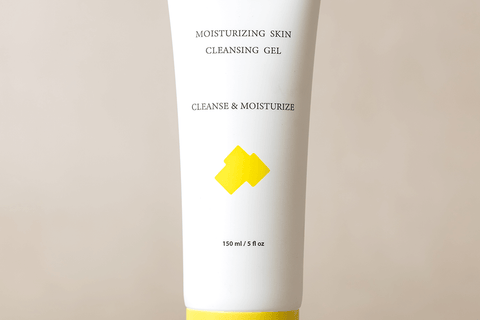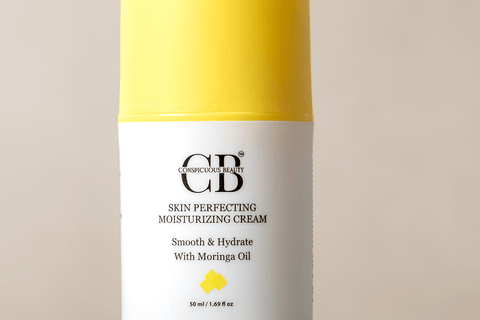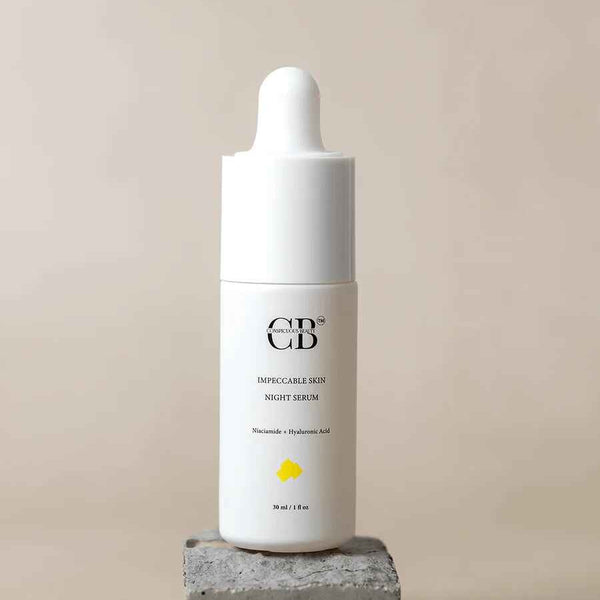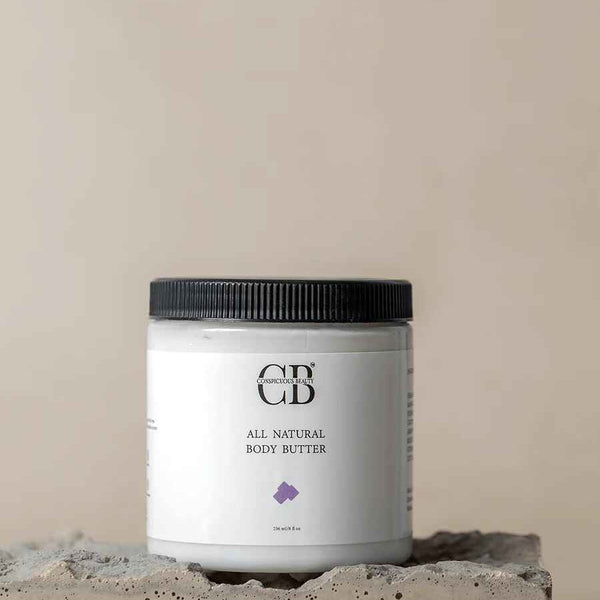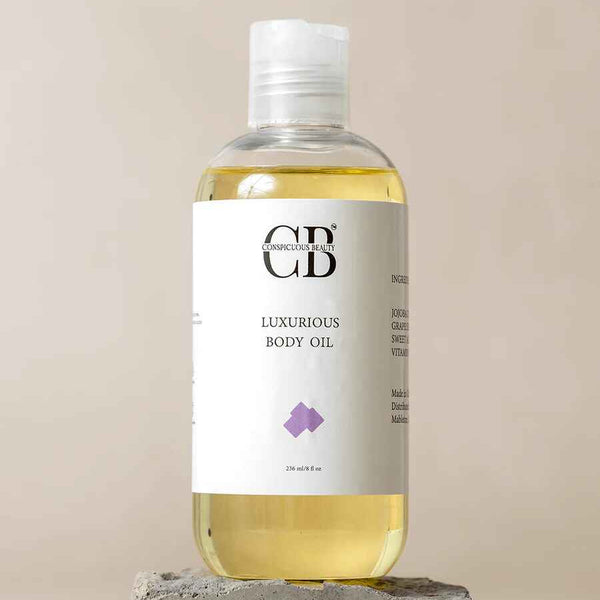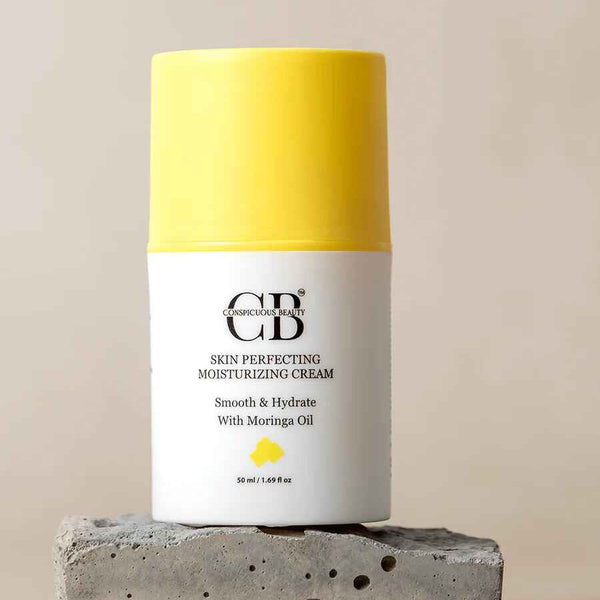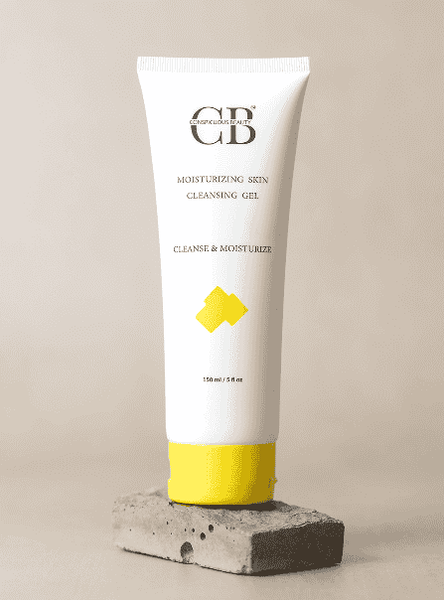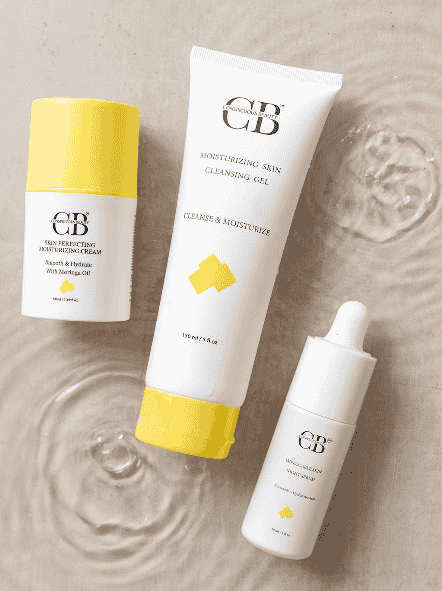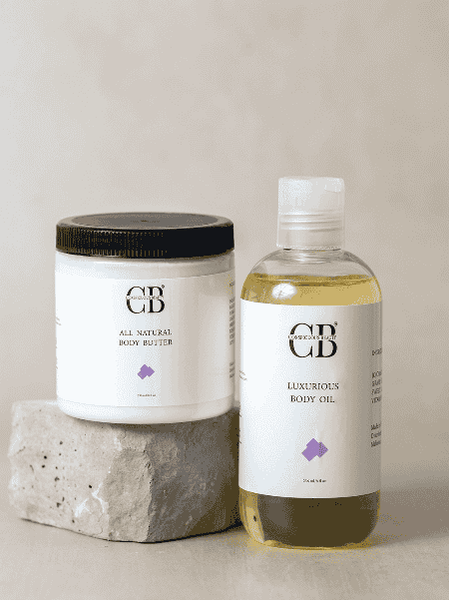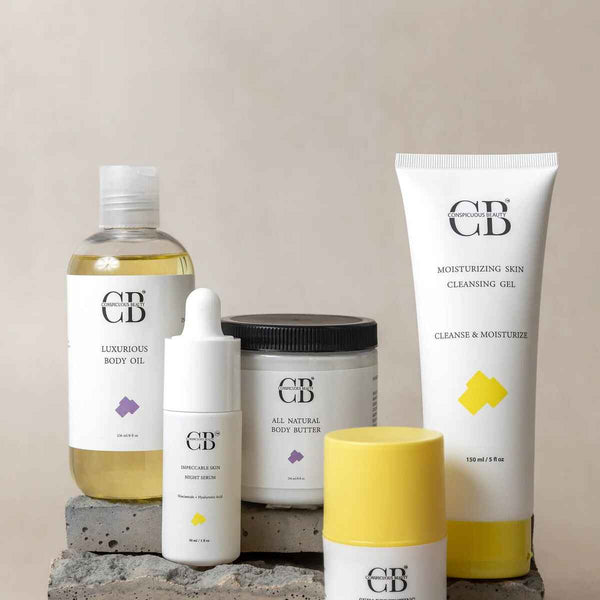Healthy skin is not just about cleansing and sun protection. Keeping the body moisturized is just as important, especially if you want soft, smooth, and glowing skin all year round. Today, two of the most popular moisturizers are body butter and body oil. Both nourish the skin, but they work in different ways. Understanding those differences makes it easier to pick the product that best suits your skin type and lifestyle.
This article explains how body butter and body oil work, their benefits, who should use which, and whether you can combine both for maximum results.
What Is Body Butter?
Body butter is a thick, rich, creamy moisturizer made from natural butters such as shea butter, cocoa butter, or mango butter. It is often blended with oils and vitamins to create an ultra-nourishing formula. Because of its heavy texture, body butter slowly melts into the skin and forms a protective layer that locks in moisture for many hours.
People with dry or rough skin benefit the most from body butter. It feels luxurious and soothing, and many enjoy using it at night or after a warm shower when the skin absorbs hydration more easily.

Benefits of Body Butter
-
Deep and long-lasting hydration
-
Softening of rough areas like elbows, heels, and hands
-
Protection against cold or dry weather
-
Skin repair for dehydration and flakiness
Because many body butters are made with natural ingredients, they are often well-suited for people with sensitive skin.
What Is Body Oil?
Body oil is a lightweight, liquid moisturizer created to nourish the skin and leave a smooth, glowing finish. It is not the same as cooking oil or hair oil. Body oils are specially formulated to absorb quickly without leaving a sticky or greasy layer. They hydrate by strengthening the skin’s natural moisture barrier and preventing water loss.
People who enjoy a silky and radiant finish often prefer body oil for daily use. It spreads easily and feels smooth without heaviness.

Benefits of Body Oil
Body oil helps by:
-
Softening the skin and increasing elasticity
-
Providing a natural glow without greasiness
-
Absorbing faster than most body creams or butters
-
Locking in moisture when applied to damp skin
Some body oils also include calming botanicals, such as lavender, chamomile, and almond oil, which help with relaxation and stress relief.
How Body Butter and Body Oil Differ
Even though both products hydrate the skin, their texture and effects are very different.
Body butter is thick, slowly absorbed, and designed for deep moisture. It forms a protective layer that lasts for hours. Body oil is lightweight, spreads easily, and absorbs quickly. It is ideal for people who want hydration plus a glowing appearance without waiting for the product to sink in.
Body butter tends to give a soft, velvety finish, while body oil leaves the skin smooth and slightly radiant.
Because body butter stays on the skin longer, it is perfect for nighttime use, cold seasons, and anytime your skin needs intense nourishment. Body oil is ideal for everyday use, especially in warmer weather or when you want to moisturize quickly and get dressed right away.
Which Product Matches Your Skin Type?
Your skin type plays an important role in choosing the right moisturizer. Below are simple guidelines to help decide:
Dry or Very Dry Skin
If your skin becomes flaky, tight, cracked, or rough easily, body butter is the better choice. It restores deep moisture and prevents water loss. People who live in cold climates or spend a lot of time in air-conditioned environments often prefer body butter because it protects the skin from dryness.
Normal or Slightly Dry Skin
Body oil is perfect because it hydrates without feeling heavy. It adds shine and softness and absorbs quickly, making it convenient for everyday use.
Oily or Acne-Prone Skin
Most oily-skin users assume body oil is not suitable, but certain lightweight oils can actually balance natural oil production. A heavy body butter might feel too sticky for oily skin types, while light body oils, such as grapeseed or jojoba, can work well without clogging pores.
Sensitive Skin
Both body butter and body oil can be suitable for sensitive skin, depending on ingredients. People with sensitivity should look for fragrance-free formulas and avoid alcohol and synthetic scents. Shea butter, cocoa butter, and cold-pressed oils are great gentle ingredients.
Best Time to Use Body Butter
Because body butter is thick and rich, the best time to apply it is:
-
After a nighttime shower
-
Before going to bed
-
During winter or dry weather
-
After shaving to restore softness
-
On areas that naturally crack, like heels and elbows
If you wake up with dry or tight skin in the morning, applying body butter before sleep can fix that. It gives the product enough time to melt into the skin overnight and deeply hydrate the surface.
Best Time to Use Body Oil
Body oil works best right after a shower while the skin is still damp. Damp skin helps the oil trap moisture inside and absorb more efficiently.
You can also apply body oil:
-
Before going out to make your skin glow
-
After a bath in summer when you need something light
-
During a relaxing massage
-
Whenever your skin looks dull or tired
People who dislike heavy creams usually prefer body oils because they feel smooth, lightweight, and quick to apply.
Can You Use Body Butter and Body Oil Together?
Absolutely yes. In fact, combining both creates one of the most powerful moisturizing routines.
A great technique is:
-
Apply body oil on damp skin after a shower.
-
Then layer body butter on top to seal in the moisture.
This two-step method delivers instant softness and long-lasting moisture. It is especially beneficial for people with extremely dry or damaged skin.
Which One Absorbs Faster?
Body oil absorbs faster than body butter. If you are in a rush and need to moisturize before getting dressed, body oil is the better option. It sinks into the skin quickly and leaves a silky finish.
Body butter takes a little more time to be absorbed, but it provides deeper moisture that lasts for many hours. That is why many people prefer using body butter at night.
Which One Is Better for Long-Term Skin Health?
Both products support long-term skin health, but in different ways.
-
Body butter restores and protects the skin’s moisture barrier.
-
Body oil improves softness, elasticity, and the skin’s natural glow.
If your skin frequently becomes rough, dry, or irritated, body butter should be your primary moisturizer. If your skin looks dull or lacks shine, body oil will help improve texture and radiance.
Many people switch between the two depending on weather conditions, oil in summer and butter in winter. Others use oil in the morning and butter at night.
There is no wrong choice. The ideal routine depends on how your skin feels and what finish you prefer.
Ingredients to Look For
Whichever product you choose, check the ingredients. High-quality ingredients help the skin more effectively than fancy packaging.
Great ingredients in body butter include:
-
Shea butter
-
Cocoa butter
-
Mango butter
-
Coconut oil
-
Vitamin E
Great ingredients in body oils include:
-
Jojoba oil
-
Sweet almond oil
-
Argan oil
-
Grapeseed oil
-
Rosehip oil
Natural and cold-pressed ingredients provide the most nourishment. People with sensitive skin should avoid heavy fragrances, artificial scents, and alcohol.
Final Verdict: Which One Should You Choose?
There is no single “best” choice for everyone. The right product depends on what your skin needs and how you like your skin to feel.
-
Choose body butter if you want deep, rich, long-lasting moisture and velvety skin.
-
Choose body oil if you prefer lightweight hydration and a glowing finish.
-
Combine both together if you want the softest, smoothest, most hydrated skin possible.
Body butter and body oil are not competitors, they are simply different moisturizers for different needs. Listen to your skin and choose the option that makes you feel comfortable, confident, and moisturized.
